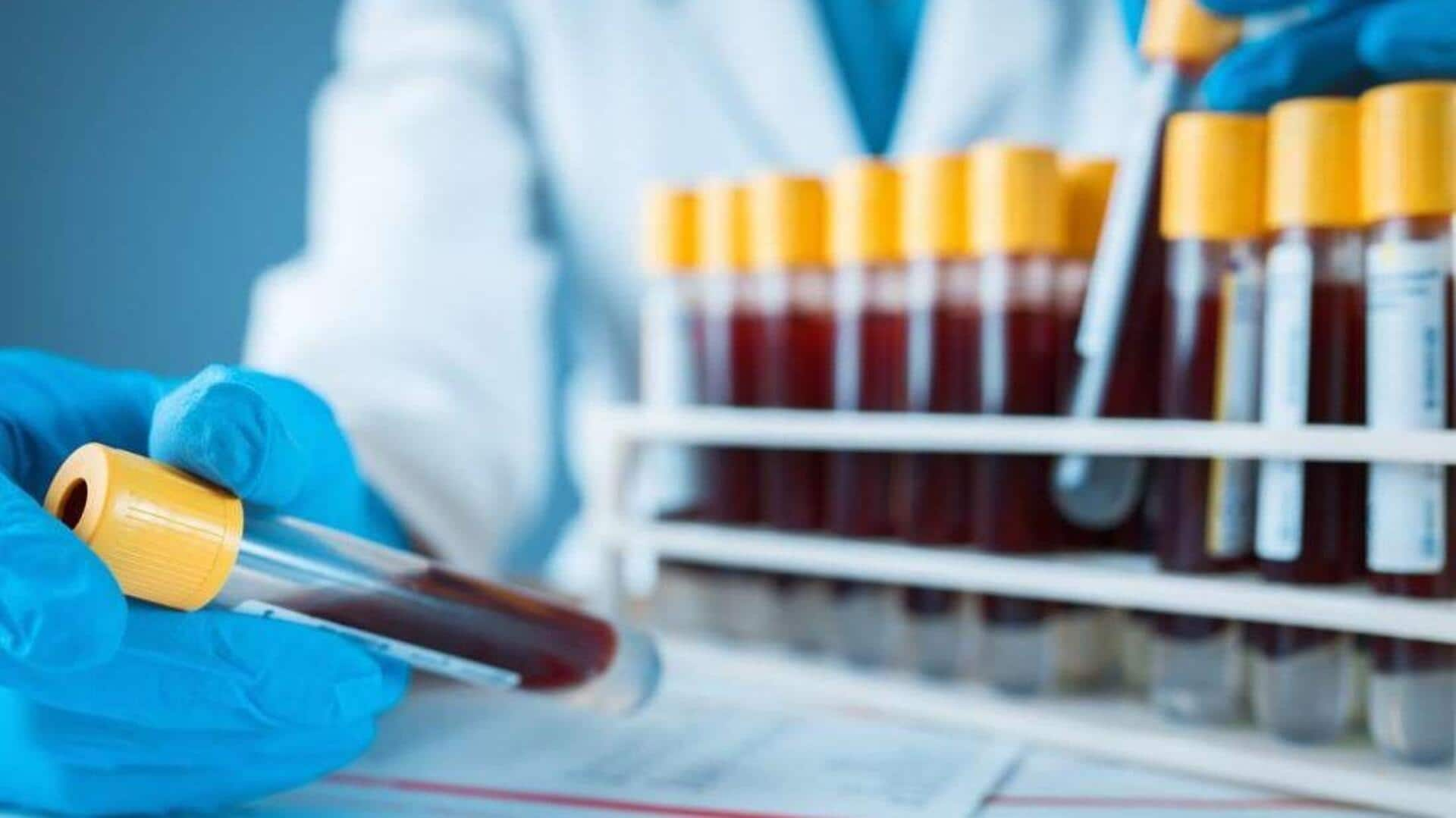
New blood test detects brain cancer in an hour
What's the story
A groundbreaking blood test that can detect glioblastoma, the most common and lethal type of brain tumor, within an hour has been developed by scientists. This innovative 'liquid biopsy' requires only 0.1 milliliter of blood and has demonstrated superior accuracy compared to existing tests for glioblastoma. The prototype was created by a joint US-Australian team led by researchers from the University of Notre Dame in the US.
Biomarker detection
Test identifies cancer biomarkers in blood
The new test identifies mutated blood biomarkers known as epidermal growth factor receptors (EGFRs), which are overexpressed in certain cancers including glioblastoma. These biomarkers are located inside extracellular vesicles, small packages containing proteins, lipids, and genetic material from their parent cells. "Extracellular vesicles or exosomes are unique nanoparticles secreted by cells," explained biomolecular engineer Hsueh-Chia Chang from Notre Dame.
Technological breakthrough
Biochip technology aids in cancer detection
To detect the molecules released by cancerous tumor cells, a highly sensitive biochip is immersed in an untreated blood plasma sample. This cost-effective chip, priced under $2, features a tiny sensor roughly the size of a ballpoint pen's ball. The key interface contains antibodies that attract exosomes carrying mutated EGFRs. When these EGFRs bind to the biochip, a voltage change occurs in the plasma solution, indicating potential cancer presence.
Clinical trials
It has shown high accuracy
In clinical trials, the biochip was tested on blood samples from 20 patients with glioblastoma and 10 healthy individuals. Each test used a single chip. The liquid biopsy successfully detected cancer biomarkers with high accuracy and a very low p value, suggesting the test is highly replicable. "Our electrokinetic sensor allows us to do things other diagnostics cannot," said biomolecular engineer Satyajyoti Senapati from Notre Dame.
Future prospects
Test's implications and limitations in cancer research
Despite its potential, the test has limitations. Mutated EGFRs are associated with other diseases like colorectal cancers, and not all glioblastoma cases can be diagnosed using this method. The team plans to analyze larger cohorts of glioblastoma patients to identify unique blood biomarkers. "The current diagnostic platform can be scaled up for such large-library testing of untreated plasma from a large cohort of cancer patients," the researchers stated.